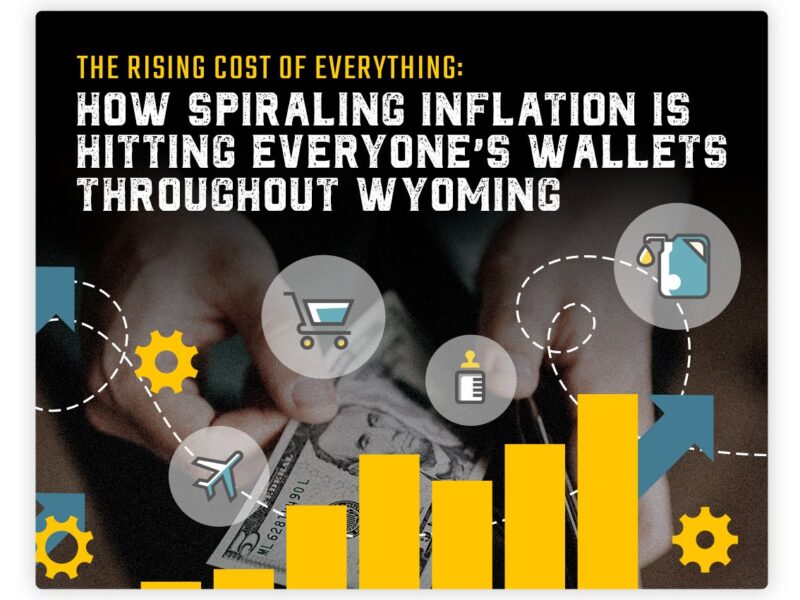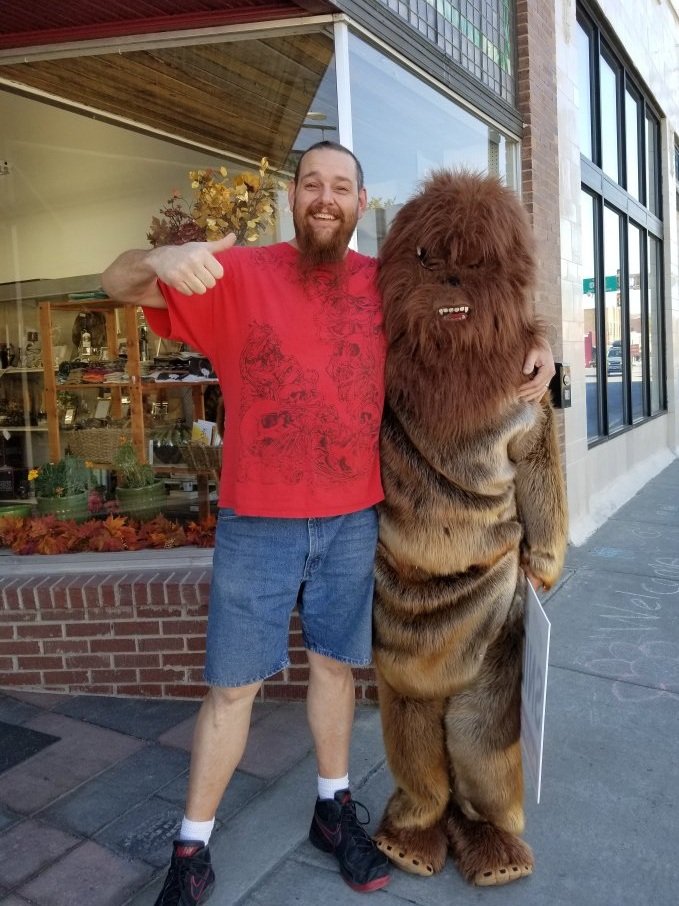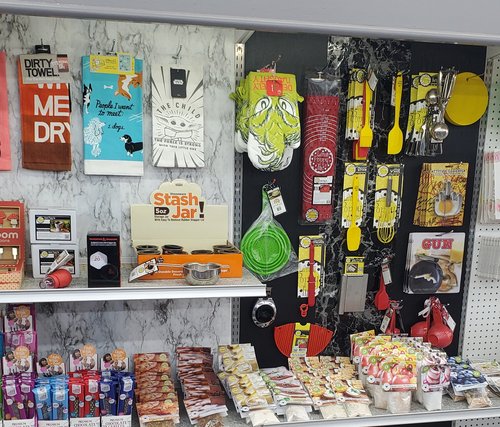THE RISING COST OF EVERYTHING: Rawlins Geek Culture Store Owners See Sales Slow Due to Inflation
Geek-ish Things sells novelty items, games and toys, but customers reduce spending due to high cost of necessities
- Published In: Other News & Features
- Last Updated: Oct 15, 2022

By Jake Sorich
Special to the Wyoming Truth
Aaron and Mary Durst have always considered themselves to be geeks. They’re into role-playing games like Magic: The Gathering and television shows like “Dr. Who” or “Star Trek.” Plus they love to “geek out” at game and comic book conventions in Denver or Seattle.

Eight years ago, the couple moved from Idaho Falls to Rawlins, where they invested $200,000 to buy a 4,000-square-foot building and the inventory required to run an oxygen-supply store. A few years later, they got an idea: “What if instead of just buying these [geekish] items online, we opened our own store and sold them here?” Durst, 46, recalled.
In 2018, they took the plunge and opened Geek-ish Things, which sells “nerd culture” merchandise in the same building as their other business. After a successful launch, the Dursts soon earned enough to make it their primary income.
Geek-ish Things sells thousands of games, toys, novelties, greeting cards, gifts and more. Price points vary: Starter decks for Magic: The Gathering run around $25, but rare cards can sell for $100 to $500 apiece depending on supply and demand.
The store also carries candles, teas and balloons that cost between $5 and $30 each. In the past year, rising wholesale and operational costs have forced Durst to raise the retail price on roughly 80 percent of the store’s merchandise.
Not surprisingly, sales have started to dry up. Regular customers are now spending less on little luxuries in order to afford now-pricier necessities such as food, gas and shelter.
“People don’t need a Super Mario lamp for $100, you just might really want it,” Durst said.
Durst has seen the utility bill shoot up at Geek-ish Things. Depending on the season, he can spend $500 for heat and $200 for electricity per month—around a 15 percent increase since last year.
Durst’s experience aligns with the finding of the U.S. Bureau of Labor Statistics, which reported last week that prices for goods and services across the country increased another 0.4 percent in September and are 8.5 percent higher than a year ago.

Last summer, Durst said there was more foot traffic at Geek-ish Things than during the COVID-19 restrictions of 2020, but it’s still not as busy as it was pre-pandemic. That said, he noted that being the only geek-oriented shop in town will help them in the long run.
“Some people specifically will come off the freeway, because they want to come to the store and be nerds,” Durst said.
But Durst is realistic: While they’re able to stay in business for the foreseeable future and pay a part-time employee, the threat of closure is always looming around the corner.
Much like their customers, the couple has put the brakes on discretionary spending.
“I just don’t have extra money to spend on fun things,” Durst said. “We have had to quit spending money on hobbies, and we quit going out, mostly.”
While Durst still takes part in Magic: The Gathering tournaments, he stopped splurging on the “really cool things,” such as the all-new Dominaria United booster packs that can cost $160 for around 400 cards. He also put his radio-controlled plane hobby on pause, as new models can carry a $2,200 price tag.
Drawing on his own experience, Durst is putting extra effort into rotating the inventory at Geek-ish Things to appeal to customers who still want to get their geek on—but at lower price points.
“If anything, inflation has enhanced the need for diversity,” he said. “If we bring something in, maybe we won’t again because it didn’t sell, so we do something different.”
Virtual reality booths are an affordable popular addition—and a customer draw. Last summer, Durst charged $15 for 30 minutes with the VR goggles and $25 for an hour. It’s not a “staple of the store,” but it sometimes gets people through the front door.
Even though inflation is at a 40-year high, Durst is trying to keep his emotions in check.
“I’ve been less frustrated about inflation and more about the reasons for it,” he said. “Things like Russia attacking Ukraine or stupid [stuff] that doesn’t need to happen in the world that has changed things immensely.”













